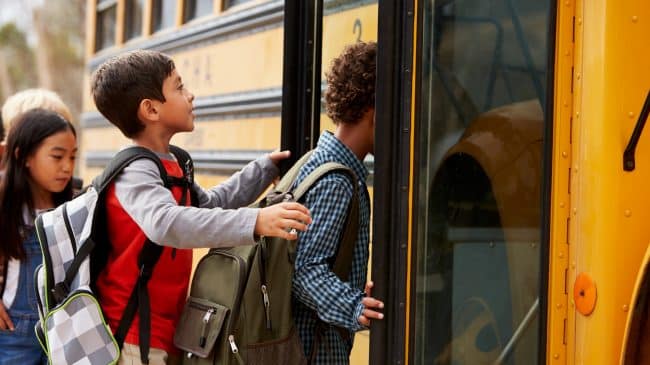A year into the COVID-19 pandemic, state lawmakers across the country are introducing legislation aimed at empowering families who are seeking out educations that best suit their children, regardless of school attendance zones. In Arizona, state senators recently introduced two bills intended to remove barriers preventing public school students from attending schools outside of their residentially assigned school districts and to help students more easily find transportation to their schools of choice. The well-intentioned legislation could be successful in achieving these goals, but there are a few things policymakers should be mindful of.
While Arizona already has an open enrollment policy that allows families to choose to attend public schools in other school districts, Senate Bill (SB) 1685 is intended to strengthen the existing open enrollment law and ensure families have access to available seats. The proposed legislation requires that the state and school districts clearly notify families about their rights to apply to attend other public schools. The bill would also strengthen protections for applicants so that they aren’t discriminated against based on factors such as race, income, academic or athletic achievement, or disability status.
Fundamentally, the proposed changes would only allow the state’s schools and school districts to deny open enrollment applicants based on having limited capacity—which they would be required to report according to a standard format outlined by the state Board of Education.
It may seem redundant to add these provisions to an already-existing open enrollment law, but our recent research suggests that explicit protections for families are necessary for such a policy to truly be effective. Without sufficient prescriptions for how schools and districts should evaluate open enrollment applications, states often find that school districts still exercise considerable discretion over which students (and how many) they will accept, regardless of capacity. To address this challenge, SB 1685 would make Arizona’s open enrollment process more transparent and fairer to all families.
Although research on the benefits of open enrollment is limited, there’s still evidence suggesting that families use it for diverse reasons—such as to access specialized academic programs or to escape bullying—and that students tend to transfer into higher-performing school districts. Research also indicates that open enrollment incentivizes school districts to be more responsive to the needs of families and communities.
However, if passed, effective implementation of SB 1685’s provisions would be critical, especially as it relates to crafting an enforceable definition of school capacity. Additionally, while the bill would require school districts to post their open enrollment policies online, it doesn’t ensure that this information would be aggregated and reported at the state level for parents and the public to access, which would promote an additional layer of transparency.
The bill does have language requiring that Arizona establish a uniform reporting format that all schools must comply with and it will be important for the state Board of Education to effectively establish these standards.
To support open enrollment expansion, a second bill, SB 1683, would incentivize public school systems to modernize their transportation services and even open a pathway for families to get direct transportation grants in cases where school bus routes don’t accommodate them. This is an important addition because, without viable transportation, changes to the open enrollment law would likely fall short.
Public school transportation has been strained in Arizona due to the strong prevalence of school choice and the existing transportation system has been slow to adapt. Notably, there are only a small number of bus contractors in the state and current law imposes a 20-mile cap on the distance school buses can travel to pick up nonresident students.
SB 1685 would reform this 20-mile cap, while SB 1683 would go further by providing some funding for public schools to coordinate new transportation services or direct grants for families to arrange for their own services.
As a national leader in customizing K-12 education, Arizona is facing unique challenges and these bills seek to provide families with greater access to opportunities.


